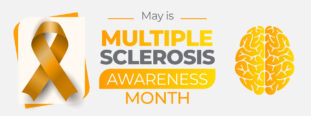What do you tell the kids about MS?
Multiple sclerosis is a disease of the individual but it affects the whole family. People are typically diagnosed in their twenties or early thirties – when they’re planning to start a family or already have young children at home. When you’re first diagnosed, your first instinct may be to shield the child and keep your illness a secret. But children are detectives and MS will scatter enough clues – fatigue, forgetfulness, mysterious sick days, a stumble or fall – for them to sense that something is wrong. To them, MS can become the monster under the bed. Or in their search for a bad guy, they may even blame themselves for causing their parent’s MS.
So what do you tell your child (or partner for that matter) about MS?
This question was recently addressed to a series of nine focus groups of people with MS, their partners and their teen-aged children (Nilsagard & Bostrom. Int J MS Care 2015;17:42-48). The main theme that emerged was that everyone needs to be well-informed about MS. The key word isn’t “informed” in an era of Google searches that breed their own brand of monster; but “well” – getting the information a person needs to cope with the uncertainties of MS. Of course well-informed will mean different things to different people, and the need for information will change during the course of MS.
So let’s look at what the focus group participants said from their differing perspectives.
The parent with MS: An MS diagnosis can be a shock, and people said they found it difficult to talk about it at first because they were still coming to terms with what MS might mean to them as an individual. It was helpful for the partner to be informed right at the beginning, and to take on part of the burden of telling the children. Many people know little about MS at first, so explaining the situation to the kids can be difficult. It won’t be reassuring to the child if all of his/her questions are met with, “I don’t know”. Children’s books that explain MS can be helpful. One suggestion was for health care staff (the doctor or MS nurse) to help explain the illness to the whole family. For some, it was best if these sessions excluded the person with MS so the children could ask questions without having to worry about upsetting their mother or father. Bringing the child to the clinic can also help remove some of the mystery and stigma of MS in the child’s mind. Support group sessions with other parents and children can also be helpful, but maybe not right away. Some felt that the family needed to learn how to cope with the diagnosis before they expanded the circle to other members of the family or non-family members.
The partner: The partner is often the person caught in the middle. The focus is on the person with MS, which can leave partners feeling left out and alone in facing their own fears and uncertainties. This can be especially difficult since the partner often gets the job of public relations, reading up on MS to be the family expert, and explaining the illness to people at family gatherings. It can be difficult to cope – with new roles or responsibilities, financial worries, fears about the future – and this isn’t always recognized and acknowledged.
The adolescent child: There’s no lack of information for any adolescent with Internet access. But one teen commented that he would Google “MS” while his mother sat silently in the next room: “Why can’t she talk to me about it?” A general comment was that it was helpful for adolescents to accompany the parent to the clinic and talk directly to a doctor, nurse or physical therapist – people who could address their questions or fears with practical information. Access to a good source of information and reassurance made MS less frightening. A parent’s MS can be socially embarrassing to an adolescent – the parent is different from other kids’ parents – but it was easier if the adolescent was able to decide who would be informed about the situation, such as friends or teachers.
MS can bring families together or pull them apart. The bond is that you’re all in this together, gathering information, learning about what MS means to the person and the family, and devising solutions to the daily challenges. The main conclusion of the focus groups was that accurate information, carefully explained and updated as needed, is the essential tool to enable everyone involved to develop the coping skills they’ll need.
Share this article
Facebook Twitter pin it! Email
Related Posts
Back





